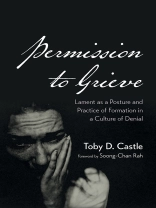Being a follower of Jesus in the evangelical community in America is equated to a posture, practice, and pursuit of triumphalism. Followers of Jesus have misunderstood, maybe even lost, the great value of public and private lament. Lament is incongruent with a theology of continual and ongoing triumphalism. Yet, suffering, loss, and lament permeate Scripture and the human experience.
To lament is to cry out to God with our doubts and to bring complaints against God. It is a posture and practice of worship and surrender that helps followers of Jesus wrestle, engage, process, and understand loss, creating a sacred space for the suffering voice to speak. Lament is a practice absent in the church that is recognized and understood as a way of naming grief and suffering, of standing and hoping in the midst of ruins.
In the context of San Francisco, the practice and theology of lament in the lives of those who follow Jesus becomes a parody of cultured syllogisms and hyper-vanquishing that forms a community frail to moments of liminality, anxious in seasons of uncertainty, and ill-equipped to deal with the obscurities of everyday life.
O autorze
Toby D. Castle is an Australian-born educator turned author and practical pedagogical theologian with a passion for seeing followers of Jesus think well and live fully with a posture and practice towards human flourishing. With a master’s in global leadership and a doctorate from Fuller Theological Seminary, Castle speaks, writes, and teaches practical theology and cultural competency to equip the people of God to live fully in today’s day and age. He resides in the Bay Area, in Northern California, where he continues to speak, write, and teach in church and seminary contexts.







![Pokrywa Brian Schrag & Julisa Rowe: Community Arts for God's Purposes [Chinese] 貼近神心意的社群藝術 Pokrywa Brian Schrag & Julisa Rowe: Community Arts for God's Purposes [Chinese] 貼近神心意的社群藝術](https://static.worldofdigitals.com/thumb_webp/740/9781645083740.webp)




